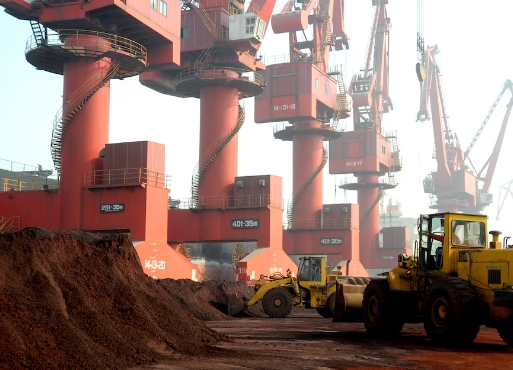
Workers transport soil containing rare earth elements for export at a port in Lianyungang, Jiangsu province, China October 31, 2010.
In April, China suspended exports of various critical minerals and magnets, impacting supply chains for industries such as automotive, aerospace, semiconductors, and defense. German automakers cautioned that these restrictions could halt production and affect local economies, echoing concerns raised by an Indian electric vehicle manufacturer last week. The materials are vital for products ranging from cars and drones to robots and missiles.
Shipments of these essential components have been delayed at Chinese ports as export license applications undergo regulatory review. This has caused widespread concern in corporate and government circles, with officials from Tokyo to Washington exploring alternative supply options. "If the situation is not resolved quickly, production delays and even outages cannot be ruled out," said Hildegard Mueller, head of Germany's auto industry group, in a statement to Reuters on Tuesday.
White House spokeswoman Karoline Leavitt told reporters that U.S. and Chinese officials are in ongoing discussions, with a call between U.S. President Donald Trump and Chinese President Xi Jinping planned this week. "I can assure you that the administration is actively monitoring China's compliance with the Geneva trade agreement," Leavitt said. The export restrictions are expected to be a key topic during the talks.
Frank Fannon, a minerals industry consultant and former U.S. assistant secretary of state for energy resources, emphasized the urgency of addressing the issue. "I don’t think anyone should be surprised how this is playing out. We have a production challenge and need to secure resources and ramp up domestic capability as soon as possible," he said.
Business leaders and diplomats from Japan, Europe, and India are seeking urgent meetings with Chinese officials to address the export delays. A Japanese business delegation is scheduled to visit Beijing in early June to discuss the issue with the Ministry of Commerce. European diplomats from countries with significant automotive industries have also requested emergency meetings. In India, Bajaj Auto warned that continued delays could "seriously impact" electric vehicle production, with a delegation of auto executives planning a trip to China in the coming weeks.
The Alliance for Automotive Innovation, representing major automakers like General Motors, Toyota, Volkswagen, and Hyundai, highlighted the critical role of these materials in a letter to the U.S. administration in May. "Without reliable access to these elements and magnets, automotive suppliers will be unable to produce critical components, including transmissions, motors, sensors, and cameras," the letter stated.